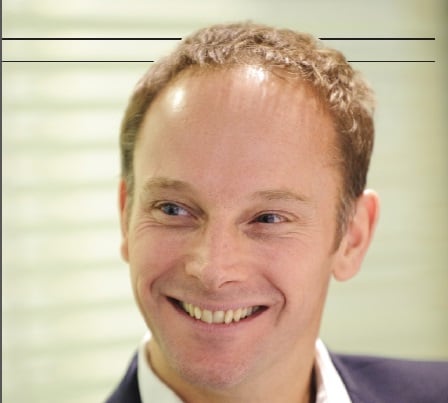

IT SOMETIMES seems those at the top never have to work to get there – that they are handed their success or have had it easy. But the journey of David Walsh, CEO of CFC Underwriting, offers a telling glimpse into what it takes to succeed. In founding his own company, Walsh has had anything but an easy ride – starting his business with vision and promise, only to have the rug pulled out swiftly from under his feet.
“I set up a business called Click For Cover to sell cyber insurance back in 1999,” he says. “We were trying to sell it through this – at the time – brand-new distribution mechanism called the internet, via internet service providers. I talked to British Telecom and got a deal to promote cyber insurance to all their business customers through their ISP arm. However, by April 2000, the dot-com bust came along, and suddenly everyone was changing their plans – and now BT weren’t remotely interested in our deal anymore. So the idea for the business fell off its feet.”
There was no clinging to the ropes for Walsh, however. Despite the crushing blow, he noticed demand in another area – brokers who were eager to learn more about the cyber product.
“We realized quite a few brokers were interested in cyber,” he says. “So at that point we rebranded the business from Click For Cover to CFC, and we haven’t looked back.”
“In 1999 and 2000, there was a feeling that cyber insurance was the next big thing,” he says. “It wasn’t just us – there was AIG in America, Hiscox in the UK and so on. It’s had lots of false dawns.”
While Walsh makes light of his cyber vision, it was one he unearthed via an unusual career path. Having broken into the business as a UK-based professional indemnity broker with Marsh at age 23, Walsh spent four years with the global brokerage giant before becoming part of a small team at Howden Insurance Brokers, an independent firm where Walsh says he learned the entrepreneurial spirit from the company’s owner, David Howden.
“No disrespect to Marsh or any other big company, but when you sit there, it can all seem beyond your reach,” he says. “But working with David, it opened my eyes that it’s not impossible to have success in this industry.”
Walsh’s path to success then took a twist, however. In 1998, he found himself headed to Israel to work as an in-house underwriter for an insurance broker.
“I took a binder with me, which meant I could sit in the brokerage and write for any trade within the professional indemnity classes,” he says. “It’s one thing learning your trade in London as a young man, but I don’t think there’s anything better than getting close to your customers – there’s no substitute for that. If you’re in a customer’s office and you don’t know what you’re talking about, you get found out pretty quickly.”
For Walsh, it was the beginning of a journey toward the tech industry that coincided with the dot-com boom. “Though I went [to Israel] to write any class of professional indemnity, suddenly the tech sector was super exciting,” he says. “In those days, when those companies listed on NASDAQ, as a lot of Israeli companies do, many of them were paying over $1 million for their D&O insurance.”
“Like any business, we spend our energy where we are successful, and in the US and Canada, the business has worked particularly well,” Walsh says. “We’ve built products around what the customer wants to buy, as opposed to a lot of insurers that build products they want to sell.”
Operating internationally has given Walsh a clear view on why cyber insurance has taken so long to gain ground with some brokers – and how they could simplify their approach.
“Because the US market was penetrated first – and was often centered around US healthcare companies – that language crossed the Atlantic and was used in the UK and internationally and perhaps that’s confused a lot of people,” he says. “Really, everywhere outside America, it’s primarily just about crime – from ransomware to business interruption, nearly all the exposures link to crime.”
Now that the cyber insurance market is finally taking off, CFC is enjoying a surge of its own, having just secured a third round of significant investment. Back in March, Vitruvian Partners bought a 40% stake in the company for an enterprise value of approximately $304 million.
“We really like doing these deals every few years, because every time you do it, you can recut the equity, and we’re really committed to wide and deep employee share ownership here,” Walsh says. “This deal has allowed us to move from 46 management and staff shareholders to 128. The amount we own of the business has gone from 18% to 60% – so it’s a deal that we’re really excited about.
” But in keeping with Walsh’s career so far, even that deal brought its own unique bump in the road.
“I thought I left university with a degree, but it turned out, as I discovered recently when I had some due diligence done on me as part of the transaction, that actually I didn’t turn up to collect it – so I didn’t officially get it,” he says. “So I have been unwittingly lying about it all my life.”
